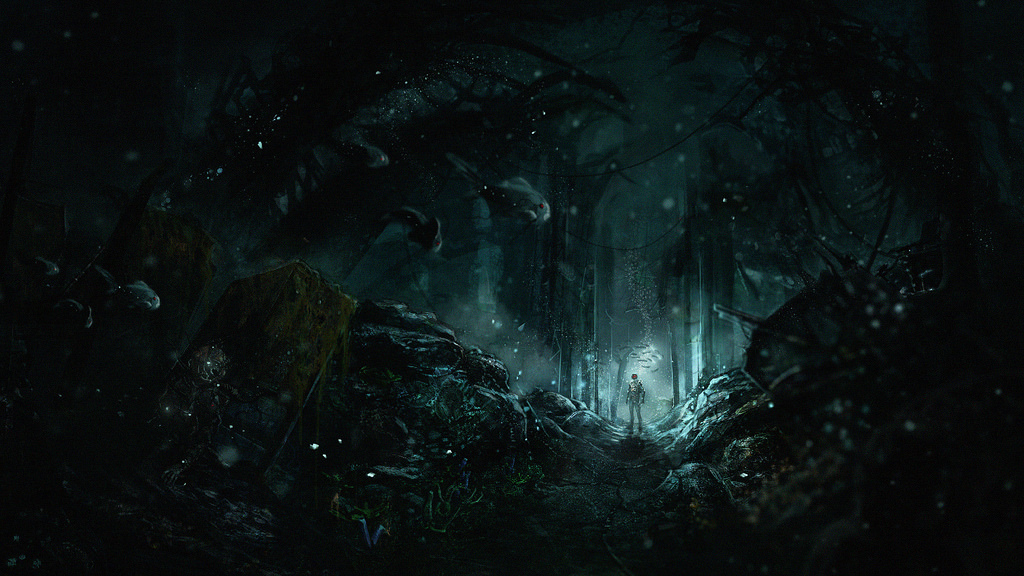Quantic Dream learns with each game, and adresses their issues with new features. But with new features come new issues, and lots of juicy design lessons. In this blog post I will talk at length about affordance, then touch upon branching and themes.
Miguel Nogueira: Concept Artist
Hi. My name is Miguel Nogueira and I am a concept artist and designer at Frictional Games. My job is to create art for concepts that we might or might not add to the game. The point of concept art and design is planting creative seeds in others through the means of art, to spark debate on the suggestions, and to bring the concepts to life from sketch to product.
Still alive
Wha- huh? What’s this? Someone was supposed to update the website? We’ve been too hard at work on our two new games, and kind of forgot there was this thing to upkeep.
Gregor Panič: Gameplay Programmer
Hi there! I’m Gregor and I’m a designer and programmer at Frictional, which means I’m responsible for all the fun events in our levels. Okay, maybe they’re fun just for us.
Alex Camilleri: Gameplay Programmer
Hi, my name is Alex and I am one of those people on this planet who make games for a living. I joined Frictional Games almost a year ago as a gameplay programmer & designer, and I am currently working on [REDACTED].
Max Lidbeck: Gameplay Programmer
I’m Max, and I do gameplay programming and design. I joined Frictional about a year and a half ago, and I’ve been working on one of our super secret projects since.
Q&A with Frictional writer Ian Thomas
On the last day of the cold January Will from Extra Credits sat down to stream SOMA, and for the first few hours of the game he was joined by his friend and Frictional employee Ian Thomas. Ian worked on scripting, coding, and level design for SOMA, and is now the Story Lead on one of Frictional’s two upcoming projects. During the stream he answered some questions from the viewers, ranging from what type of pizza he thinks Simon had in his fridge, to ways of minimising dissonance between the player and the character in a narrative game.
SOMA – Two Years Later
It’s over two years since we released SOMA, so it’s time for another update on how things have been going.
The Illusion of an Analog World
There is something about unclear options which make choices a lot more interesting. This post goes into the reasons behind this, and various ways of achieving it in games.
The Complexity Fallacy
It is easy to think that the player sees all of the complexity you put into a game, but nothing could be further from the truth. A game’s complexity is basically meaningless when it comes to the end experience. All that matters is what the player actually perceives.



